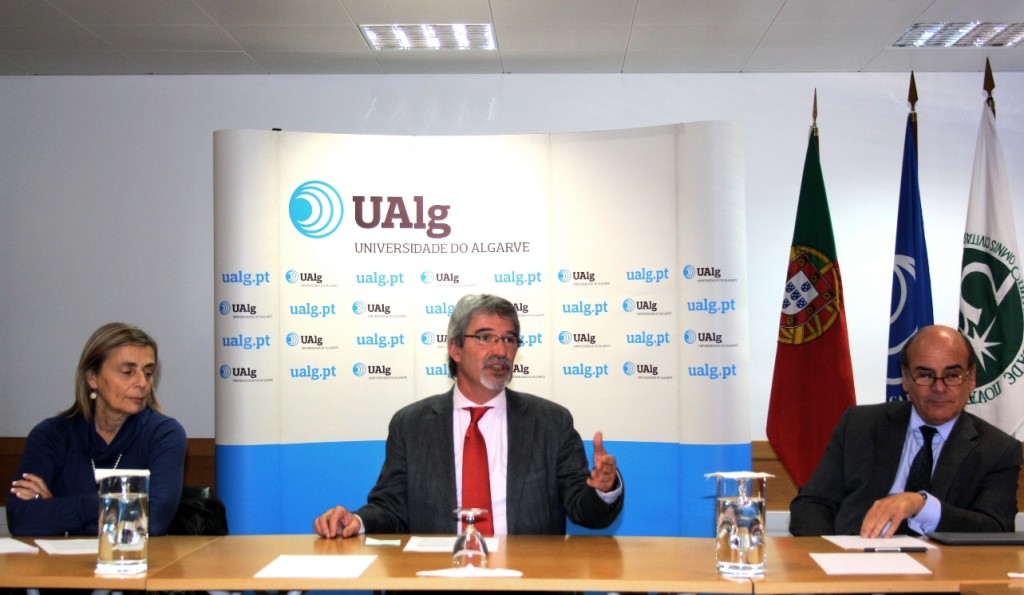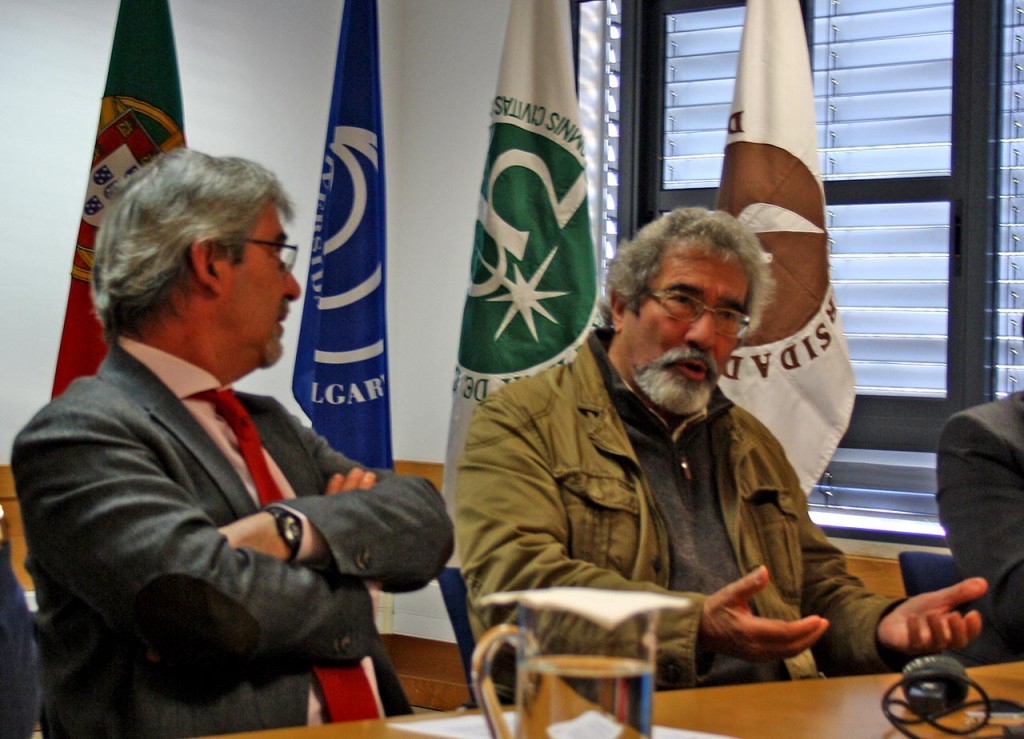 The universities of Algarve, Évora and Nova de Lisboa created the platform «Mediterranean Studies, university consortium», which will put them to work together in the areas of Heritage, Water Resources and Energy.
The universities of Algarve, Évora and Nova de Lisboa created the platform «Mediterranean Studies, university consortium», which will put them to work together in the areas of Heritage, Water Resources and Energy.
A partnership in which resources from the three higher education institutions will be committed, namely their human capital, with the intention that this collaboration will bring effective results, as guaranteed by the rectors of the three universities, at a joint press conference held today in Faro.
The idea is to gain dimension, not only through the union between the three Portuguese Higher Education Institutions, but with an expansion of the platform across borders, namely to North Africa. In the pipeline, there are already collaborations with Universities of Morocco and Tunisia, as well as Algeria, although, in the latter case, the partners have yet to be identified.
The logic behind this cooperation project is clear. «You can't create a consortium from the top, we have to start at the bottom», defended the dean of UAlg António Branco, on the sidelines of the session. Hence the focus on three specific areas, where there is capacity but, above all, willingness to work together.
And when it comes to will, it is on the part of the researchers and other academics involved who will be the real engines of this project. “We're not going to work at all, you're going to do it”, said, jokingly, the dean of the University of Évora Ana Costa Freitas, addressing researchers and professors from the different universities present.
António Rendas: “Basically, we want to do better together than we do individually. I know that in Portugal this is said a lot, but we really want to do it”
“The truth is, if we can't get people [in the academic community] excited, it's very difficult to succeed. And I see people excited about this project», added the dean of the Alentejo university.
António Rendas, rector of the Universidade Nova de Lisboa, spoke of three institutions "very committed to developing the South", which, according to him, begins on the Tagus, recalling the center that his university maintains on the south bank of this river. «Basically, we want to do better, together, than we do individually. I know that in Portugal this is said a lot, but we really want to do it. If we are not capable, we will not be able to attract partners from the other side of the Mediterranean, nor will we be able to mobilize resources to capture projects for Portugal», he illustrated.
António Rendas refers to the assumed objective of being able to establish lines of research in our country, through this platform, that “drink” from international funding sources, namely the European Union. Something that is currently very complicated, given the size of the projects that it is possible to present, individually, by each of the universities involved. «Basically, we want to become more competitive», summarized António Branco.
In the Memorandum of Understanding that was formalized about a month and a half ago, in Évora, by the universities that launched the consortium, it is stipulated that the project will be oriented «to the progress of knowledge, to the quality of Higher Education and to the qualification of activities provision of services within the Mediterranean countries'.
 The search for partners has already started for some time and is bearing fruit. At the partners' meeting that preceded the press conference, the Mértola Archaeological Field officially joined the platform. An acquisition that can help, when it comes to convincing North African universities to join the project, since, as the director of this camp, Cláudio Torres, illustrates, "there are many students from North Africa who seek the camp to study the Islamic period." and “there are exceptional conditions for entering into partnerships with other countries in the South”.
The search for partners has already started for some time and is bearing fruit. At the partners' meeting that preceded the press conference, the Mértola Archaeological Field officially joined the platform. An acquisition that can help, when it comes to convincing North African universities to join the project, since, as the director of this camp, Cláudio Torres, illustrates, "there are many students from North Africa who seek the camp to study the Islamic period." and “there are exceptional conditions for entering into partnerships with other countries in the South”.
And there are already some HEIs interested in cooperating. Among them, the University of Marrakesh, in Morocco, which was classified as the best university in Africa, in the ranking published by the The Times Higher Education/2015. In this North African kingdom, there are four other universities involved.
“We also have three or four universities in Tunisia that are also available. The weakest link is Algeria, where we have not yet managed to define partners», summarized the former dean of the University of Algarve João Guerreiro, who has been closely linked to this effort in bilateral relations.
Internally, there is an opening for the entry of more partners, although the entry of any more has not yet been announced.

















Comments